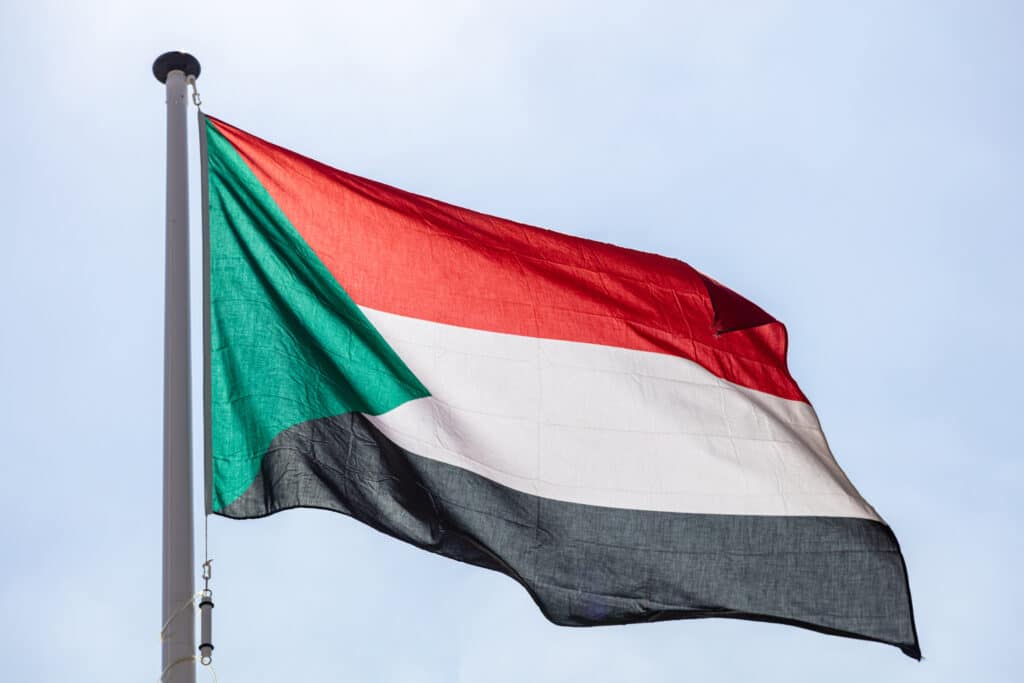
A few weeks ago, Sudan descended into a bloody conflict, prompting thousands to flee, including a raft of European diplomats. When the diplomats leave a country it’s always a sure sign of the beginning of something serious. Without diplomacy to advocate for peace and talks, well it’s inevitable that violence fills this vacuum.
In a nutshell, the latest upheaval in this unfortunate country, (already suffering drought and famine), is a result of the failure to transfer peacefully from Omar al Bashir’s dictatorship which fell in 2019. Four years on, civil bodies and agencies who have pushed for democracy, are now sandwiched between two warring factions, Gen Abdel Fattah al-Burhan, the country’s de facto ruler, and the former warlord Gen Mohamed Hamdan Dagalo, both claiming they are the man to lead Sudan into a new dawn. Where have we heard that before?
Africa, more than any of the other continents, has suffered from dictators, despots, military juntas and civil wars. Would it surprise any of you to say this was what European leaders wanted when they could no longer control Africa after the collapse of imperialism in the mid twentieth century? Once the crushing debts of world war two caught up on England, France, Germany, Belgium and the rest, maintaining armies, civil servants and subsidising their colonial fiefdoms; it was only matter of time before the European leaders would have to withdraw. At the time, there was an attempt to paint their withdrawals as some sort of benevolent gesture, one that was embracing the spirit of freedom and democracy that they had fought for in both the Great War and then World War Two. Leaving destabilised countries, with artificial national boundaries, and amalgamating disparate tribes was part of the geopolitical control. The colonial masters, while giving independence, left many of the new fledgling states dependent on their former masters for support, even to this day. For example, France still meddles in the francophone African nations. Though France did not have direct involvement in the Rwandan genocides of 1994, their colonial legacy meant that the structures they set in motion that empowered the Hutus minority, would lead to them slaughtering 800,000 ethnic Tutsis. Colonial powers always have used the classic divide and conquer, even when they supposedly leave.
Media outlets found that many ‘local’ embassy staff in the current crisis in Sudan, were shamefully abandoned once the conflict came to their doors. These people who were good enough to be the embassy co-workers, cleaners, security and gardeners were superfluous to the Europeans when the crunch came. Echoes of this happened in Rwanda too. The French army, who ‘came to the rescue’ in 1994, left hundreds of Tutsis embassy staff to their bloody fate, yet evacuated some Hutus politicians whose bloody fingers were stain with genocidal involvement.
Now we have Sudan making the headlines. It previously consisted of a territory ruled by Great Britain, called Anglo-Egyptian Sudan. Wielding African nations into ‘Nation states’, based on western traditional lines, has led to the troubles we see today elsewhere across the continent. These made-up ‘nations’ did not possess class or ideological reasons, nor religious or ethnic. There often was no traditional or historical reasons to build unity. Egypt and Sudan today are so different, it’s ridiculous to ever imagine how their were morphed into those boundaries. On gaining independence in 1956, it spent thirty years of that in a state of civil war. One of the issues was that under the artificial creation of national boundaries, the powers that be mixed Sudan with Arab Muslim’s ethnicity and with those of the north, who were Christian and of different ethnic makeup. Of course we strive as humans to live in peace no matter what our differences, but this is easier said than done. The artificial Sudan did not settle [as planned no doubt – it also contains massive oil fields that British Petroleum have a stake in, and outsiders like Great Britain can interfere for their vested interest.]
When the British did leave, of 800 posts that were due to be filled by local civil servants only six were awarded to southern. There soon came more uneven distribution of interests across a strata of society. The southern Corp army were commanded by ‘northern’ officers causing a mutiny, which led to the first civil war. This ripple effect has run right through Sudan’s history, so much so that finally, in 2011, South Sudan was created, and legitimised in international law in 2011. But the legacy of misrule, corruption and history continues to plague the region, as witnessed by the latest outbreak of war in April.
Why was the Sudanese territories coveted by the British in the first place? Sudan was an essential stepping stone for Britain’s interest in securing territory on the African continent that would link Cairo to Cape town all along British annexed land. They succeeded in conquering or controlling a north south passage that ran from Egypt, through Sudan, Kenya, Malawi, Zambia, Zimbabwe all the way to South Africa. So one nation’s imperial dream becomes a nightmare for the people of those lands.
Colonialism has affected India too. British colonialism was a brutal occupation and not a civilising effect as some colonial historians want us to think. The Indians fought in huge numbers in World War One, approximately 1.3 million of them, in return hoping for some sort of autonomy. Those who didn’t fight sent money, animals, foodstuffs, and textiles. They sold precious heirlooms, all in the belief that they were on the ‘right’ side of a moral war. If only ones morals could protect them. When the war ended, instead of the promises of responsible self-government and some control over their own destiny, the British actually reimposed wartime censorship, increased taxes, broke their political promises and indeed banned any gatherings, peaceful or other. The Amritsar massacre 1919, probably epitomises more than any other event, the self-interests and rabid imperialism of Britain. Orders to ban mass gatherings coincided with the Punjabi spring festival. Families gathered for food and celebration inside a walled garden without a hint of politics to this celebration of a traditional festival. The British Administration ordered General Dyer out to deal with the Indians. He arrived without warning, ordering his soldiers to shoot all the people present. He later boasted that “1,650 rounds fired and not one bullet wasted”. It was estimated by the British that 350 were killed, but it was probably double that. The wounded had to lie 24 hours before being attended to. The House of Commons condemned him but the House of Lords commended him. He was awarded a bejewelled sword and a pension worth a quarter of a million in today’s money. The great English poet Rudyard Kipling hailed him as “The man who saved India”.
I taught in London for a few years: They don’t cover colonial history and tend not to interrogate their darlings like Kipling too closely. Winston Churchill often comes top of the list in their greatest ever Prime Minister.
Speaking of India and Indians, in the context of massive famine conditions there, he coldly responded, “I hate Indians, they are a beastly people with a beastly religion. It’s all their fault for like breeding like rabbits”… and when it was reported that 4.3 million had consequently died he wrote “Why hasn’t Gandhi died yet?”



